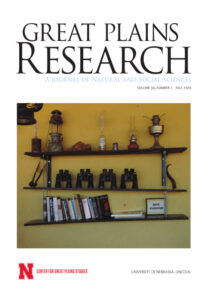Looking at how Namibians Engage in Ecotourism
Professor and Great Plains Fellows Larkin A. Powell along with Kelly D.J. Powell published a new piece in Great Plains Research looking into the details ecotourism operators in Namibia through first-hand interviews and interactions. The article is available via ProjectMuse.
Perceptions of Risk and Adaptive Capacity Frame Decisions by Namibians Engaged in Ecotourism
Volume 30, Number 2, Fall 2020
University of Nebraska Press
Abstract:
Ecotourism must address financial, ecological, and social expectations to be sustainable as a business venture. Therefore, decisions made by ecotourism operators are complex. To characterize the framework used for decision- making by Namibians in the ecotourism business, we conducted 11 interviews with ecotourism operators in Namibia, which is home to an established ecotourism industry. Our interviews revealed that perceptions of risk and adaptive capacity drove decisions. Some ecotourism operations in our sample originated as a means to diversify farming operations and reduce risk from drought. The operators saw great value in their landscapes and generally expressed a high level of sense of place. Although wildlife were valued, the potential for droughts and wildlife population cycles caused tourism operators to focus their activities on local landscape features and the peaceful setting of their farms. We conclude by drawing parallels and contrasts between Namibia and the Great Plains of the United States, which may allow local organizations to take proactive steps toward the goal of successful ecotourism businesses that contribute meaningfully to the community and environment.

